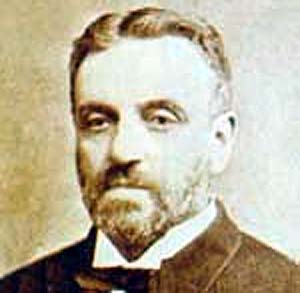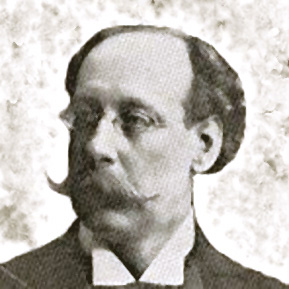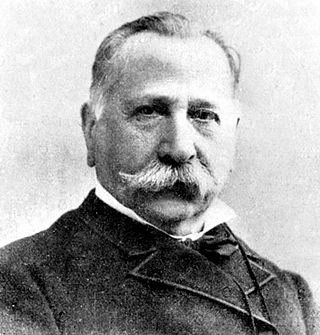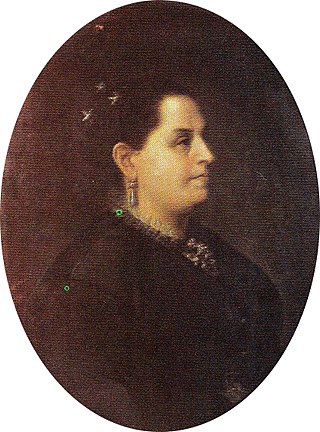Pérez or Perez, as most commonly written in English, is a Castilian Spanish surname. Peretz or Perets is also common among people of Sephardi Jewish descent, and is the 4th most common surname in Israel, most common surname not of Hebrew language origin, and most common surname exclusive to a single Jewish ethnoreligious subgroup.

Jorge Montt Álvarez was a vice admiral in the Chilean Navy and president of Chile from 1891 to 1896.

Pedro Elías Pablo Montt Montt was a Chilean political figure. He served as the president of Chile from 1906 to his death from a probable stroke in 1910. His government furthered railroad and manufacturing activities but ignored pressing social and labour problems.

Manuel Francisco Antonio Julián Montt Torres was a Chilean statesman and scholar. He was twice elected President of Chile between 1851 and 1861.
José is a predominantly Spanish and Portuguese form of the given name Joseph. While spelled alike, this name is pronounced very differently in each of the two languages: Spanish ; Portuguese.

José Manuel Emiliano Balmaceda Fernández served as the 10th President of Chile from September 18, 1886, to August 29, 1891. Balmaceda was part of the Castilian-Basque aristocracy in Chile. While he was president, his political disagreements with the Chilean congress led to the 1891 Chilean Civil War, following which he shot and killed himself.

Instituto Nacional General José Miguel Carrera, often shortened to Instituto Nacional, is a public boys' school in downtown Santiago, Chile which teaches 4.400 students between 7th and 12th grade. 170 teachers are employed.
The Liberal Party was a Chilean political party created by a faction of pipiolos in 1849. After the conservative victory in the Chilean Civil War of 1829 the liberals became the principal opposition party to the Conservative Party. During the Liberal Party's early history one of its main goal was to create a new constitution to replace the Chilean Constitution of 1833. Rigged election helped to prevent the Liberal Party's presidential candidates to be elected until 1861, during that time elements of the liberal party made attempts to overthrow the government, these were the Revolution of 1851 and the Revolution of 1859. These failed insurrections led many liberals to emigrate, among them Benjamín Vicuña Mackenna. In 1863 a group of liberal split off to form the Radical Party which would hold power from 1938 to 1952. Originally an anticlericalist party that championed classical liberalism, the liberals later became a right-wing party.

Adolfo Holley Urzúa was a Chilean general who served in the War of the Pacific and in the 1891 Chilean Civil War and held posts in the resulting government.

The Parliamentary Era in Chile began in 1891, at the end of the Civil War, and spanned until 1925 and the establishment of the 1925 Constitution. Also called "pseudo-parliamentary" period or "Parliamentary Republic", this period was thus named because it established a quasi-parliamentary system based on the interpretation of the 1833 Constitution following the defeat of President José Manuel Balmaceda during the Civil War. As opposed to a "true parliamentary" system, the executive was not subject to the legislative power but checks and balances of executive over the legislature were weakened. The President remained the head of state but its powers and control of the government were reduced. The Parliamentary Republic lasted until the 1925 Constitution drafted by President Arturo Alessandri and his minister José Maza. The new Constitution created a presidential system, which lasted, with several modifications, until the 1973 coup d'état.

Pedro Vicente Reyes Palazuelos, was a Chilean lawyer, journalist, political figure, and candidate during the 1896 presidential election.
The Balmaceda family of Chile became politically influential during the 19th century, and played a very significant role in Chilean politics. The Balmaceda family is of Basque descent. They are members of the Castilian-Basque aristocracy in Chile.

José Rafael del Carmen Balmaceda Fernández was a Chilean politician, diplomat and brother of President José Manuel Balmaceda. He was of Basque descent.
Many Basques arrived in Chile in the 16th, 17th, 18th, 19th and early 20th century from their homeland in northern Spain and parts of southwestern France, as conquistadors, soldiers, sailors, merchants, priests and labourers. Due to their traditional hard work and entrepreneurship, many of them rose to the top of the social scale and intermarried into the Chilean elites of Castilian descent, giving birth to the new Basque-Chilean aristocracy in Chile. This union is the basis of the Chilean elite of today. But also, they immensely contributed to the ethnic make up of the bulk of the Chilean population. The Basque settlers also intermarried into the native American population of central Chile in the middle of the colonial period to form the large mestizo population that exists in Chile today; mestizos create modern middle and lower classes; other Basque settlers also intermarried with mestizos of Castilian descent. Many years after the first waves of settlers, thousands of Basque refugees fleeing Spanish Civil War in 1939 also settled and have many descendants in the country and have even intermarried with Spanish ethnic groups other than Castilians, and other European ethnic groups. An estimated 1.6 million (10%) to 4.7 million (30%) Chileans have a surname of Basque origin. This figure is to the least as the number of Basque descendence is great and plentiful. If one were to compare the large wave of Basques that fled to the population in the Basque Country you can see that in a way ethnically speaking Chile has more Basque blood than the country of origin.

Eusebio Lillo Robles was a poet, journalist and politician. He is the author of the lyrics of the Chilean National Anthem.

Rosario Montt Goyenechea was the First Lady of Chile from 1851 to 1861, during the presidency of her husband, Manuel Montt.
This page is based on this
Wikipedia article Text is available under the
CC BY-SA 4.0 license; additional terms may apply.
Images, videos and audio are available under their respective licenses.











